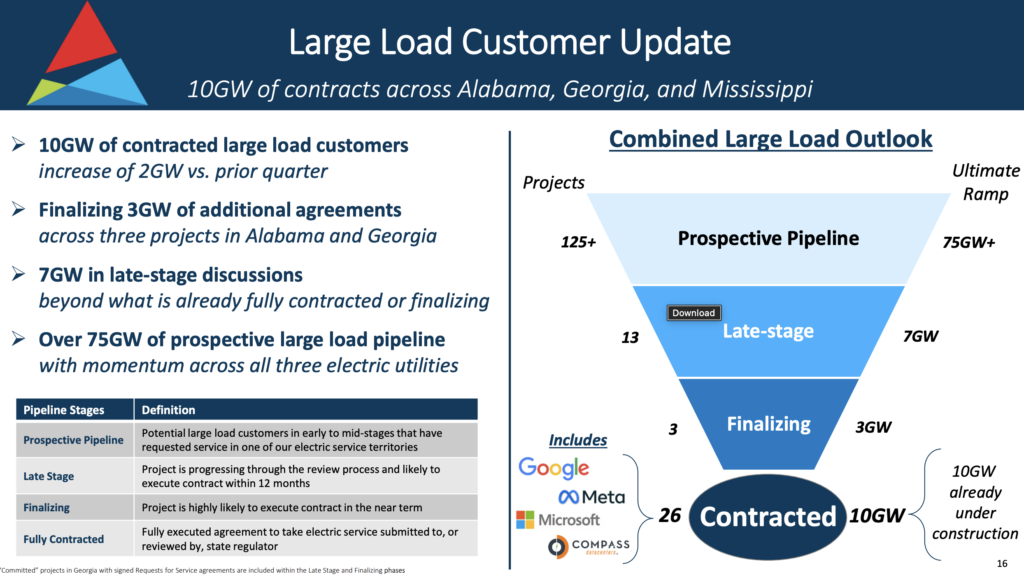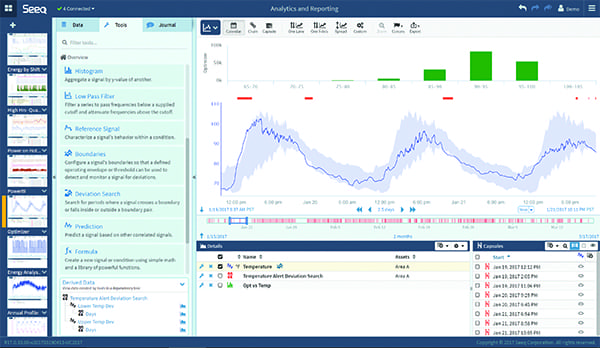Digitization in the power generation sector continues to expand. Its goal in simple terms—providing easy access to data for power plant operators and engineers, enabling the use of advanced analytics to improve equipment performance and efficiency—has resulted in reduced operating costs for utilities, and also has enhanced plant safety.
POWER’s upcoming Connected Plant Conference, set for Feb. 25-27 at the Westin Peachtree Plaza in Atlanta, Georgia, is the only event covering the digital transformation of the power and chemical process industries. From the power generation perspective, Connected Plant focuses on technology designed for the sector, from predictive maintenance to cybersecurity and risk mitigation, looking at the impact of artificial intelligence (AI) and machine-learning on power plant operations.
Utilities have been embracing digitalization in a variety of ways. Exelon, the Chicago, Illinois-based parent company of several utilities including Constellation, Atlantic City Electric, Baltimore Gas & Electric (BG&E), Commonwealth Edison, Delmarva Power, PECO (formerly Philadelphia Electric Co.), and Potomac Electric Power Co. (Pepco), is among the leaders in promoting a culture of digital innovation. Ankush Agarwal, director of Advanced Analytics at Exelon, and Hernan Espinosa, management consultant manager, together told answered questions about what their company is doing in the area of analytics, AI, and more as the utility embraces digitization.
POWER: What is Exelon Utilities’ strategy on building its new analytics and AI capability across its companies?
Exelon: Exelon Utilities needed to reduce operating costs while improving customer experience across all utilities. After already making considerable investments into Smart Grid and Customer Channel Initiatives, Exelon invested in a Data Analytics Platform with a common data model, fed from the utilities’ disparate source systems, and progressively developed data management capabilities. The Data Analytics Platform was built from data prioritized by functional use cases as organized into four domains (Smart Energy Services, Grid, Customer Experience and Advanced Metering Infrastructure [AMI] Operations).


POWER: What is an advanced metering infrastructure (AMI), and how does it differ from the standard infrastructure used by the industry? What pain points does it solve, and what benefits does it offer to Exelon and its customers?
Exelon: AMI is an integrated system of smart meters, communications networks, and data management systems that enables two-way communication between utilities and customers. The system provides a number of important functions that were not previously possible or had to be performed manually, such as the ability to automatically and remotely measure electricity use, connect and disconnect service, detect tampering, identify and isolate outages, and monitor voltage. Combined with customer technologies, such as in-home displays and programmable communicating thermostats, AMI also enables utilities to offer new time-based rate programs and incentives that encourage customers to reduce peak demand and manage energy consumption and costs.
POWER: What was needed in order for Exelon to implement an advanced metering infrastructure (e.g., skills, knowledge, technology, etc.)?
Exelon: AMI first required the field change-out of existing meters, retrofitting of gas meters and installing demand response devices. This was followed by a new Meter Data Management (MDM) System implementation to store and validate data from endpoints and provide user access to data. Additionally, the team integrated the AMI system with various utility systems, including billing and outage data, and leveraged communications technology to connect endpoints to the MDM system. The implementation also required strong program management, including change management, contract management and business case oversight.
POWER: Where are you on the path of using analytics to drive business priorities like advanced metering, and what’s next?
Exelon: As part of the Exelon Utilities Analytics’ AMI analytics program, the next priority is the full implementation of Itron’s Operations Optimizer as the primary analytics tool for all of Exelon’s operating companies. Having all analytic capabilities within one system will streamline Exelon’s business process and make them more efficient. This effort will be completed by July 2021.
POWER: How is Exelon driving a culture of analytics for the future?
Exelon: Exelon’s goal to become the utility of the future has led to a strategic initiative designed to empower employees to make data-driven decisions. In order to provide employees the tools and skills needed to achieve this, the Analytics Academy was created. The Analytics Academy is an innovative program designed to teach emerging analytics skills and provide the tools to enable employees to apply their new skill-sets to their roles. As a result, Exelon was identified as one of the industry’s emerging innovative companies in 2019.
POWER: Can you describe how you partnered with Coursera for Business to build an Analytics Academy?
Exelon: Exelon partnered with Coursera for Business to develop course content for the Adopting Phase of the Analytics Academy. The Analytics Academy has three phases: Awareness, Adopting and Leading, and the Adopting Phase is where participants deep-dive into an area of analytics that interests them. Exelon worked with their Coursera team to create nine analytics personas for employees to focus on and curate Coursera courses that tie to each persona to ultimately drive data literacy within the organization.
POWER: What feedback have you received from employees about the Analytics Academy?
Exelon: The response to the Analytics Academy has been overwhelmingly positive, from participants to Exelon executives. Leadership participation has been an integral part of the program, and many leaders have shared stories of how they’ve seen the Analytics Academy positively impact their organizations. Participants have expressed how they are constantly finding new opportunities to use their analytics learnings in many aspects of their work, laying the groundwork to move from being data-driven to data-competitive within the utilities landscape. Participants have also shared how it [has] given them skills to see problems from a new perspective and provided the tools to solve those problems in more innovative and impactful ways.
POWER: What impact are you seeing as a result of this program? Are employees applying acquired analytics skills to their roles?
Exelon: The largest impact from the program has been how quickly participants have been able to apply their new skills to their roles. In the pilot program alone, which had 120 participants, employees found ways to apply their analytics learnings in their roles across 10 complex projects, with an estimated $1-3 million in project savings across Exelon Utilities. The impact of the pilot program also led to a large increase in participation, with over 800 participants currently going through the program.
—Darrell Proctor is a POWER associate editor (@DarrellProctor1, @POWERmagazine).



















